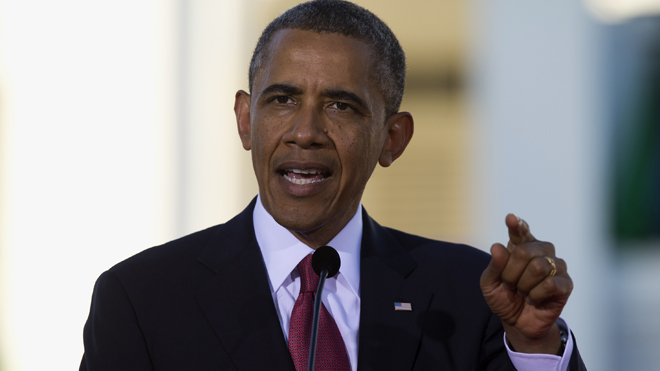 The Obama administration announced Tuesday that it is delaying a major provision in the health care overhaul, putting off until 2015 a requirement that many employers offer health insurance.
The Obama administration announced Tuesday that it is delaying a major provision in the health care overhaul, putting off until 2015 a requirement that many employers offer health insurance.
The announcement was made late Tuesday by the Treasury Department, at the beginning of the holiday week while Congress was on recess. It comes amid reports that the administration is running into roadblocks as it prepares to implement ObamaCare.
The change in the employer mandate is arguably the most significant concession the administration has made to date.
Sen. John Barrasso, R-Wyo., a critic of the law, seized on the delay as a “clear admission” that the law is “unaffordable, unworkable and unpopular.”
“It’s also a cynical political ploy to delay the coming train wreck associated with ObamaCare until after the 2014 elections,” he said.
The law requires companies that employ 50 or more workers to offer coverage or face fines. The Treasury Department and the White House said that, based on complaints by employers that the system for reporting the coverage was too onerous, they would simplify that system and give employers an additional year to comply.
“We have heard concerns about the complexity of the requirements and the need for more time to implement them effectively,” Mark J. Mazur, the assistant secretary for tax policy at the Treasury Department, said in a statement posted online . “We have listened to your feedback. And we are taking action.”
. “We have listened to your feedback. And we are taking action.”
The mandate was originally set to kick in for 2014, but will now start in 2015.
The decision effectively means that penalties that would have been assessed against non-compliant businesses will be delayed until 2015. The administration encouraged employers to provide insurance anyway.
While the employer mandate is being delayed, the so-called individual mandate — the requirement that individuals obtain health insurance — presumably remains on schedule for 2014.
The administration also still plans to open up a new marketplace for government-regulated insurance plans on Oct. 1, to take effect on Jan. 1. And a sprawling set of subsidies would also remain in place.
The delay of the employer mandate, though, raises questions about whether more elements of the law might be delayed in the coming months.
White House senior adviser Valerie Jarrett explained that, on the employer mandate issue, the administration was making two changes.
“First, we are cutting red tape and simplifying the reporting process,” she wrote on the White House blog. She cited concerns that the law would have required companies to set up new data collection systems on employee access to health care. She said: “Some of this detailed reporting may be unnecessary for businesses that more than meet the minimum standards in the law.” So, she said, the administration plans to figure out a “smarter system.”
Second, she said, the administration would delay the roll-out and penalties since they were overhauling the reporting system.
“This allows employers the time to test the new reporting systems and make any necessary adaptations to their health benefits while staying the course toward making health coverage more affordable and accessible for their workers,” she said.
Randy Johnson, senior vice president of Labor, Immigration, and Employee Benefits at the Chamber of Commerce, told Fox News that with its decision, the administration has “finally recognized the obvious.”
“Employers need more time and clarification of the rules of the road before implementing the employer mandate,” he said. “We will continue to work to alleviate this and other problems with ObamaCare.”
